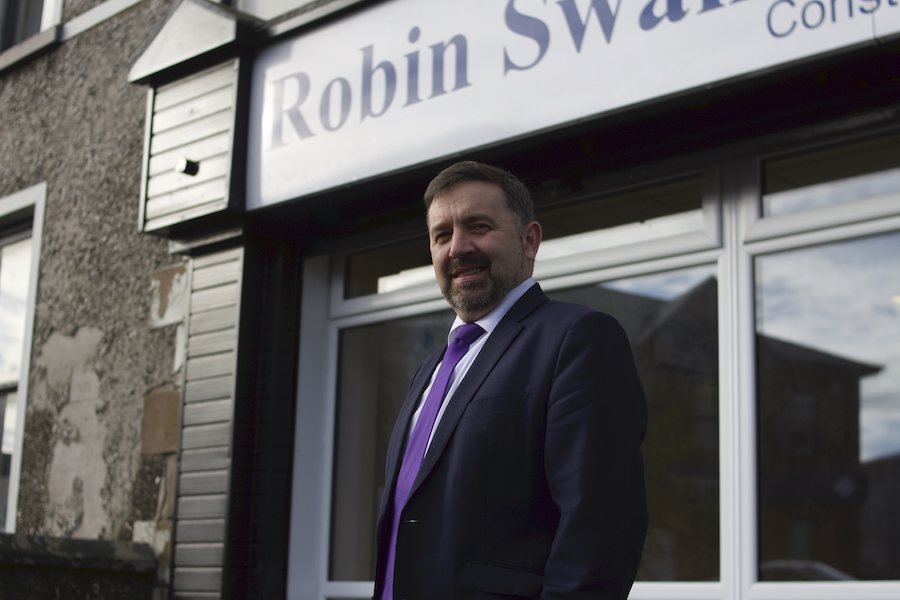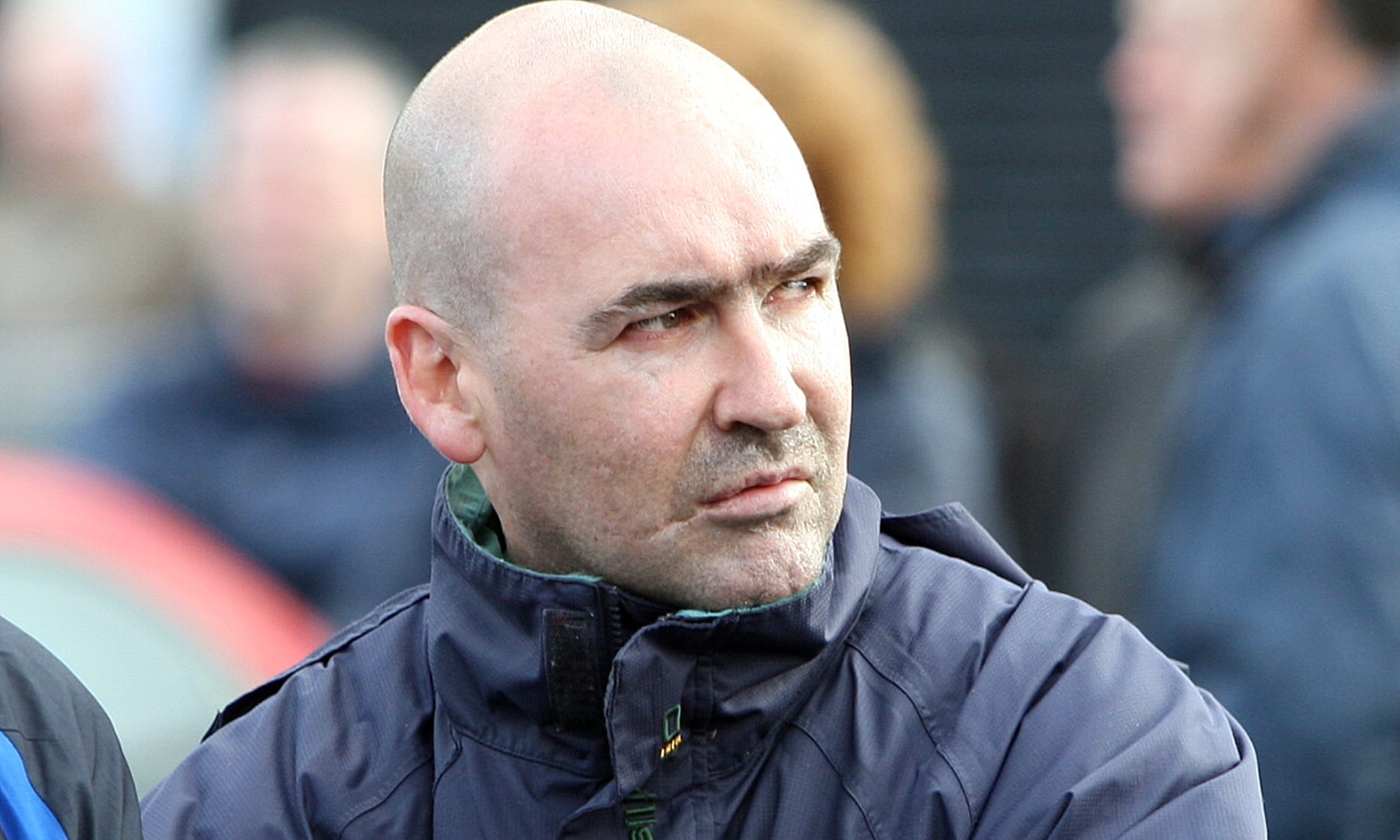Since the signing of the Good Friday Agreement in 1998, Unionists and Republicans have failed to agree on the definition of a victim. As a Trouble’s pension questions the validity of a casualty, the meaning of victim has been questioned again. Sinn Fein MLA Declan Kearney and Ulster Unionist Leader Robin Swann clarify their party’s position on the victim criteria.
“The definition of a victim has always been one of the challenges in Northern Ireland,” says Robin Swann, leader of the Ulster Unionist Party, seated around a meeting table at his constituency office in Ballymena.
“We, the Ulster Unionist Party, has wanted to see it changed because we don’t believe the perpetrator of the crime should be supported in the same way as someone who was hurt and maimed by their actions.”
In 2009, the UUP fist challenged the term of a ‘victim’ after the Consultative Group on the Past made no distinction between a terrorist victim and an innocent or security force victim as part of the Victims and Survivors Order (Northern Ireland) 2006.

Under the leadership of Sir Reg Empy, the party attempted to table an amendment to the bill, because it was concerned that the legislation allowed for one definition of a victim to be “someone who has been bereaved as a result of or in consequence of a conflict-related incident where the deceased was undertaking a criminal act in that incident”.
Sinn Fein vetoed the idea, seeing it as an attempt to prevent dead IRA men from being defined as victims.
Ten years later and the issue of the definition arises again, this time in the wake of the proposed Victims and Survivors Pension Agreement.
“Victims cannot be described as someone who went out with the intent to cause damage to others and then ended up causing damage to themselves,” explains Swann, as if baffled by the concept. “That cannot be in anybody’s mindset a victim.”
A reward for killing?
Within the agreement, the definition of a victim used is that from the Victims and Survivors Order (Northern Ireland) 2006, which makes no distinction between an ex-paramilitary and an innocent victim. This means ex-paramilitaries have to potential to receive up to £10,000 in compensation if they are eligible under its criteria.
We as a society came through this conflict together and this society was collectively marked and scared as a consequence of that and therefore practical solutions and measures being proposed to try and heal the effects of past violence, need to be taken forward on an equal and inclusive basis.”
“I think that you have to work with the existing definition of a victim, and I don’t think we can create or subscribe to any sense of a hagiarchy of victims,” says Sinn Fein MLA Declan Kearney. There was huge hurt caused in this society to all sides and by all sides to each other and so I think there is a need for us to accept and recognise everyone who has been scarred physically.”

The IRA lost 276 members during the Troubles according to the CAIN figures. In addition, a number of Sinn Féin activists or councillors were killed, some of whom were also IRA members. Irish Republican newspaper An Phoblacht gives a figure of 341 IRA and Sinn Féin members killed in the Troubles, indicating between 50–60 Sinn Féin deaths if the IRA deaths are subtracted.
“In our view, there is a need for us to adopt an inclusive approach towards dealing with the issue of the victim right across this society,” explains Kearney. “We as a society came through this conflict together and this society was collectively marked and scared as a consequence of that and therefore practical solutions and measures being proposed to try and heal the effects of past violence, need to be taken forward on an equal and inclusive basis.”
Under the proposed scheme, Shankill Road IRA bomber Sean Kelly, who lost an eye in the attack, may be eligible for up to £4,000 unless a distinction is made been convicted terrorists and innocent victims.

Michelle Williamson, who is campaigning to stop her parent’s killer receiving compensation, would receive nothing unless she is officially graded by a physiotherapist or phycologist as having a mental illness as a result of Kelly’s attack.
“A terrorist receiving compensation] wouldn’t be acceptable to us,” explains Swann, shuffling in his seat as if uncomfortable with the very thought. “That’s why we need to see clearly as to how this actually progresses through the legislative process with reason and informed debate rather than what happens with NI legislation in Westminster which is simply rushed through.”
Below an interactive map shows Dissident Republican attacks since 2016 as reported by the BBC.
A new phase of the peace process
The pension marks a new phase in the Trouble’s peace process as Northern Ireland accepts and moves forward from the physical hurt of the last two decades, but paramilitary activity is not extinct.
Paramilitary-style “punishment” shootings and beatings have surged again across Northern Ireland, with a 60% increase in such attacks over the past four years, according to the latest police figures obtained by the Guardian.
Just last month, in an interview with Channel 4 News, the New IRA said it was committed to armed actions against border infrastructure as a result of Brexit – and ‘the people who are manning them’.
“For anyone to equate a hard border or a backstop to punishment beatings or kneecapping I think is completely obtuse. There is no way a 17-year-old getting kneecapped in the Greggan has anything to do with a hard border or Brexit,” says Swann.
“We shouldn’t be talking about paramilitaries anymore. They’re not there to serve to support or protect their communities as they claim, they’re there to control and extort from the very communities that they live in.”
Sinn Fein is keen to adopt an ‘inclusive approach’ on the issue of a victim, including paramilitary attacks. Declan Kearney, who has previously voted AYE on Ending the Separation of Paramilitary Prisoners at HMP Maghaberry, insists inclusion and equality is the next step in the peace process.
“I think we have to start with the principle that we need to move forward on an inclusive basis and that all victims and their families are entitled to equal treatment, that there are no discriminatory standards that are created in how that is done,” he says.
“There must be an inclusive and equable and non-discriminatory approach taken towards how all of these matters are dealt with.
“If we depart from these core principles then the difficulty is that we fall into the trap by adopting a peaceable approach by creating a hierarchy of victim.”
Listen to Michelle Williamson’s emotional account of the day her parents never returned home here.
To see more from the project check out the links below


 Snooker is back in the UK following the COVID-19 suspension
Snooker is back in the UK following the COVID-19 suspension